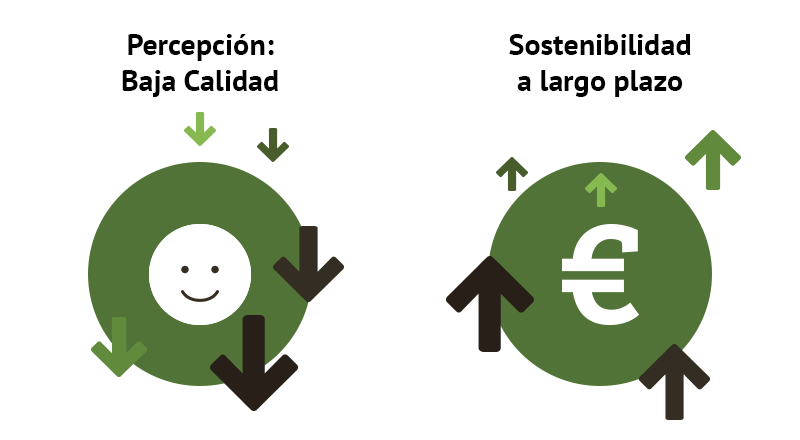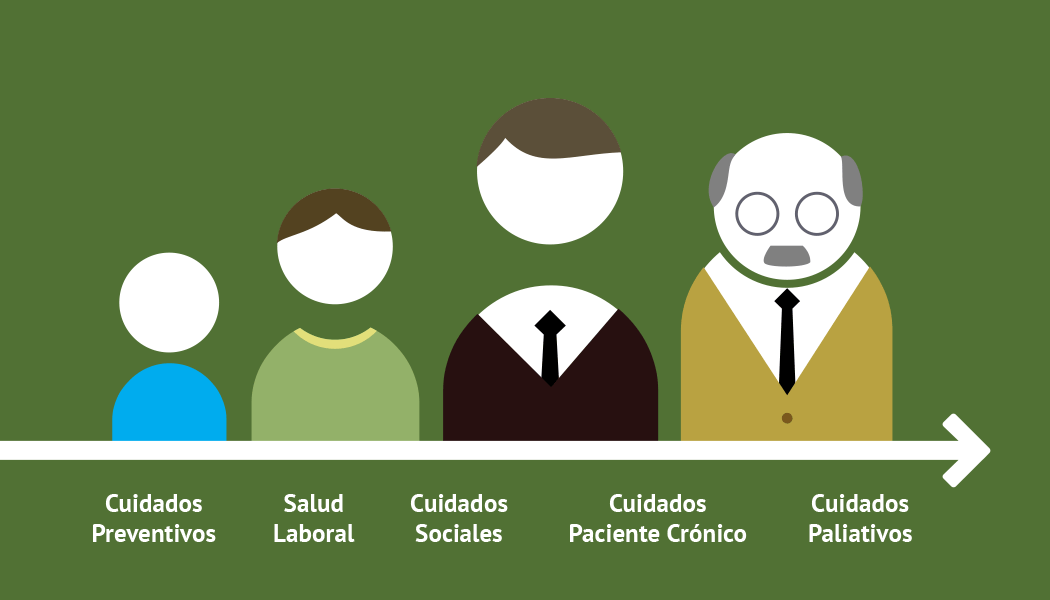Introduction
Why AdsuM+?
The socio-sanitary market actively demands data consulting services aimed at generating value and knowledge for different actors: clinicians, patients/society, public administration and the pharmaceutical industry.
In a scenario where budgetary control is fundamental for the health system, these actors demand data evidencing, documenting and justifying the use of certain treatments in daily clinical practice, as well as the ideal moment to use certain medications or doses ("Treat to Target").
Therefore, it is necessary to provide the socio-sanitary system with tools allowing:
- The rapid entry of data by multi-disciplinary teams and even the patient himself (Patient-reported Health Outcomes)
- Tools to help in the decision making in daily clinical practice, and not a posteriori
- Organization of care processes to homogenize and standardize patient monitoring and monitoring processes
- Access to important volumes of Real World Data (RWD) to understand and analyze the impact of care plans and treatments in the health system as a whole, facilitating the future development of predictive models
What is AdsuM+?
AdsuM+ is a technological platform developed on standard and open-source languages and components that deploys either in the cloud and/or "in-house", a series of services for:
- Facilitate the registration of clinical or care information relevant to any type of chronic disease by multi-disciplinary teams, using a set of forms and indicators that the Administrator of AdsuM+ can define, configure and modify without depending on third parties.
- Facilitate the registration of Patient-reported Health Outcomes (PRHOs) enabling the Chronic Patient as an active user of the AdsuM+ platform
- Use the set of indicators defined by the AdsuM+ Administrator to configure Care Plans that define which tasks should be completed in chronic disease monitoring processes and which user profiles should complete each task
- Transform the defined Care Plans into interactive Calendars that each user profile can use to complete in a simple and intuitive way the actions that have been assigned to them
- Use the entire set of recorded information to prepare different Scorecards and reports that allow the evaluation of the clinical and care status of a patient or a cohort of patients, facilitating decision making in daily clinical practice and also in the way of managing health processes related to chronic diseases (Health Outcomes, Quality of Life, Disease Activity, Treatments and their cost-effectiveness, Quality Assurance...)
- Interoperate with any pre-existing information system of the AdsuM + client to receive and return valuable information while avoiding double information registration

AdsuM+ is able to generate important volumes of anonymized data so that, in addition to the existing control in clinical practice and patient health outcomes, third parties can analyze them, using Business Intelligence and Big Data Analytics techniques.
How does AdsuM+ perform Data Consultancy services?
AdsuM+ contributes to the stream of “Ensure data for research purpose” by "opening AdsuM+ raw data" without further elaboration, but in such an "interoperable" way (in terms of "reusability") that other research communities could integrate in their respective [big] data repositories for further research elaboration.
Additionally, AdsuM+ allows its users to perform accurate analysis processes of any clinical or care-related data.
Accurate analysis of medical data benefits is not oriented to early disease detection, but to improve patient care treatment and quality of life and to decrease harmful side effects of drug interactions that can lead to serious unwanted effects or to a reduction in the therapeutic effects of some drug substances.
This “Management by Results” of AdsuM+ makes it easier for the Public Health Systems to reach purchase agreements with laboratories where prices, especially of high-impact medicines (cost), are set based on the effectiveness or results of the own treatment.
Health systems themselves define this new type of agreements in this way:
“It is a new financing model for medicines based on payment by results (EPR) schemes that involves a shared risk agreement with the pharmaceutical industry (ARC) for which drugs payment is conditioned to their therapeutic result. This is, the pharmaceutical laboratory agrees to return the amount of those units of medicines not giving the expected result. The shared risk contributes to the savings and sustainability of the Public Health Systems, especially in the introduction of new biological medicines ”.
Among the targets of AdsuM+, we aim to streamline machine learning algorithms and deep neural networks for effective prediction of acute outbreaks which can be utilized to identify high-risk patients, reduce medical cost (as high-risk patients often require expensive healthcare resources) while improving the quality of their lives.
State of the Art
The Problem: mostly “reactive” care models are used when caring for Patients
All socio-sanitary systems anywhere in the world face the same challenge: basically, care is delivered based on a reactive model (waiting for patient to come in with a problem) and this, jointly with population ageing and chronic conditions prevalence (among other factors), results in very high rates of over-usage of socio-sanitary services.

This situation is generating 2 main problems:

Integrated Care
What is AdsuM+ offering
AdsuM+ proposes a very pragmatic model for delivering Integrated Care services both for Vertical Integration (in between health providers at Primary Care – Specialized Care – Hospital levels) and for Horizontal Integration (in between Health and Social providers, like Social Workers). This ensures de-centralized care models are deployed and very important amounts of care actions can be transferred from Hospitals and Institution-based scenarios to Primary Care and Home-based scenarios.
The model AdsuM+ deploys is based on European Commission strategies promoted from the EIP-AHA partnership: View Info-Graphic

AdsuM+ is delivering proactive care (tracking patient’s status before problems get serious) on a coordinated way, always starting from whatever available data we have on Electronic Health Records (or similar ICT systems) and relying on a specific set of AdsuM+ features
Basic Features

Integrated Care Pathway Engine
For multi-disciplinary care teams to design and manage care plans with no dependency from ICT Department


Actionable Care Calendar
For every stakeholder (including Patient) to perform whatever care action required or assigned to him... “the Patient CRM”


Simple wizards to complete care actions
So anyone can follow up designed care plans and pathways (Clinical Decision Support System; adding value to non-specialist roles)


Full interoperability with pre-existent systems
For collecting and sending back whatever valuable data from and to third party systems (EHR, HIS, Active Directories, patient’s demographic databases...) so processes are not duplicated

Benefits

REAL Integrated Care; even in between “silos”

TOTAL Interoperability = Continuity of Care

Patient-Centric model leverages Self-Care

+Efficiency
+Quality of Service
Achievements
Improving Quality Key Performance Indicators along Care Delivery processes
12 months after AdsuM+ is deployed
+0 Patients
+0 Socio-Sanitary Providers

Emergency Visits
↓0%

Admissions
↓0%

Stays
↓0%
(2 days less)

Re-Admissions
↓0%
Integrated Care Models
There is not just one way of using AdsuM+: every socio-sanitary organization uses AdsuM+ according to their own needs, strategies, priorities and available resources, designing care delivery models setting its focus on Prevention, Social Services, Chronic Conditions Management, etc.
The ultimate goal is always contributing to improve socio-sanitary systems’ long term sustainability while improving quality of delivered care services.
Towards Population Health Management Systems

References
Here we list some AdsuM+ references for deployment cases in Spain, Europe and United States, not only in pure health scenarios but also for different socio-sanitary care co-ordination and Integrated Care success stories.
We would like to highlight INCA European Project as a key trans-border deployment case for AdsuM+ on the Integrated Care topic:























